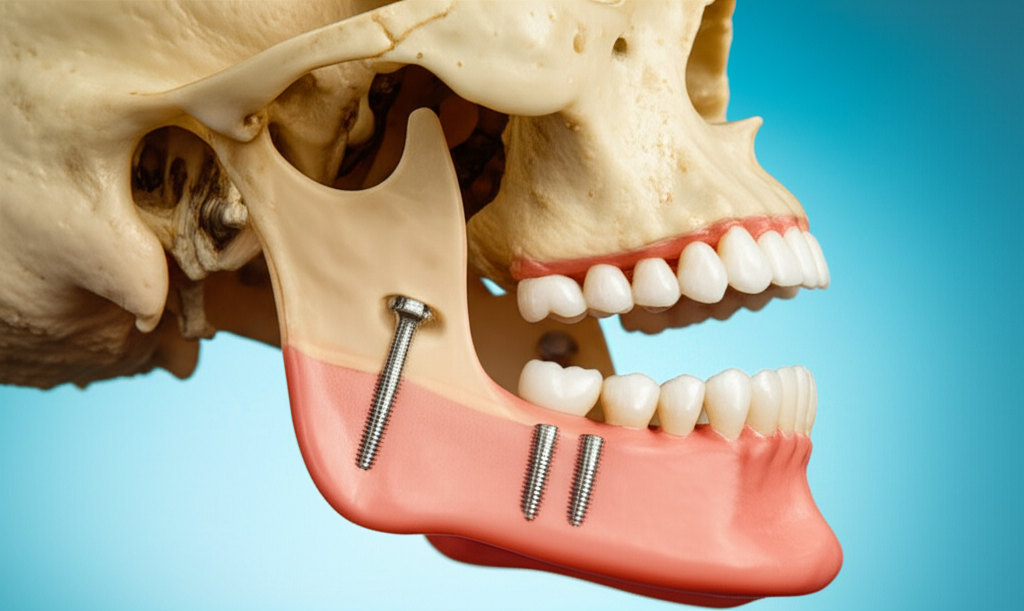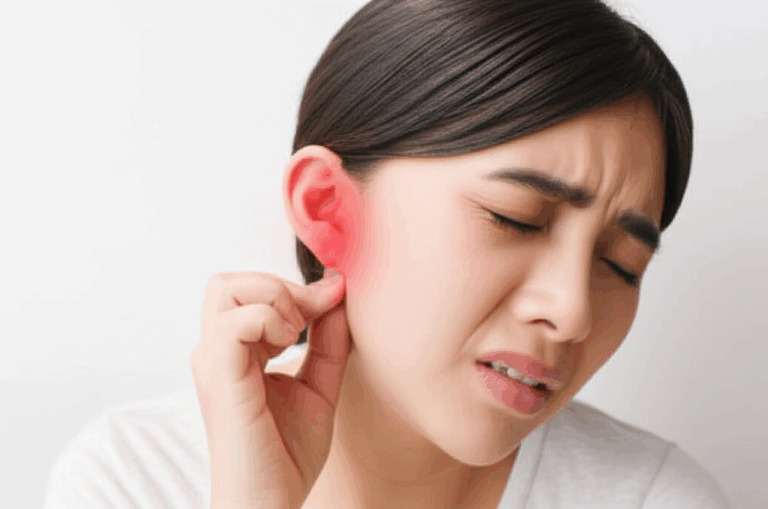
Does Peach State Health Plan Cover Dental Implants in Georgia? My First-Hand Guide
Table of Contents
Introduction: Getting the Real Story on Dental Implants and Peach State
If you’ve ever had a gap in your smile and hoped Peach State Health Plan would help pay for a dental implant, you’re in the right place. I’ve been there—dealing with big dental bills, hunting for answers, and wishing my Georgia Medicaid (run by Peach State) would step in for those pricey implants.
Let me make it simple: For most adults, Peach State Health Plan does NOT cover dental implants. I know. I was bummed too. But don’t give up yet—there are a few rare situations where they might help. If you’re stressed, confused, or just want straight info, I’ll show you what I found out, how I got the right info, and what choices I found for me and my family.
In this guide, I’ll explain what Peach State really covers for teeth, show you the details on implants, talk about the rare special cases, and share all the other choices and help I found in Georgia.
What is Peach State Health Plan Dental Coverage in Georgia?
Before I could answer my “does Peach State cover dental implants” question, I had to figure out what dental stuff Peach State Health Plan actually pays for—the basics, what’s extra, and who actually gets it.
Adult Dental Benefits Under Georgia Medicaid
Let’s be real—if you’re an adult on Georgia Medicaid with Peach State, don’t hope for a lot of dental care. Here’s what I found looking through the Peach State member handbook and calling their customer service:
- Emergency Dental Only: If you’re over 21, most Peach State dental help is only for emergencies. If your tooth is killing you, you can probably get extractions, some pain meds, and infection help. But don’t count on regular cleanings or fillings unless it’s really needed.
- Some Basic Fixes: Sometimes, fillings or simple crowns get approved, but it depends. Each case is checked to see if it’s “medically necessary.”
- Preventative Care? For adults, there isn’t much—and sometimes it’s not covered at all. Regular check-ups and cleanings are rarely included.
I got hopeful when I saw “restorative care” on websites, thinking it might cover things like implants. But when I called my dentist and Peach State’s hotline, everyone said implants aren’t covered.
Children’s Dental Benefits (EPSDT)
If you’re asking about your kid (under 21), the deal is a lot better. Kids and young adults in Georgia get much more dental care under EPSDT (Early and Periodic Screening, Diagnostic, and Treatment). This means:
- Regular check-ups and cleanings
- X-rays, fillings, some types of crowns
- Emergency and regular care
- Even some braces, in special medical situations
I asked a kids’ dentist about implants for children. Almost never covered—unless it’s because of something serious, like an accident, birth problem, or if there’s no other option.
Does Peach State Health Plan Cover Dental Implants? Digging for the Truth
This is the part I spent the most time trying to figure out. Here’s the clear answer.
The General Rule: No Coverage for Adults
I read everything Peach State puts out and even called their customer service. They told me again and again: Dental implants are NOT covered for adults. Here’s why:
- Medicaid’s rules call implants “cosmetic” or not needed for health, most of the time.
- Cost: Implants are really expensive. We’re talking $3,000 to $6,000 or more for just one tooth in Georgia. Medicaid says that’s not money well spent if they don’t have to.
- Other options exist: There are other ways to fill gaps—mostly dentures or bridges—which cost a lot less.
Everyone I talked to at dental offices or on the phone said if you’re over 21 and just want an implant for eating, for looks, or even pain—you won’t get it with Peach State.
Rare Exceptions – When Peach State MAY Pay for Implants
Are there any “golden ticket” moments? Yes, but don’t expect it unless things are really serious.
Peach State Health Plan might pay for implants ONLY if:
- Big Injuries: Like car crashes, jaw injuries, or losing a lot of teeth in a way that dentures or bridges just don’t help. I met a guy who lost his front teeth at work—his claim took months, needed loads of doctor letters, and still barely made it.
- Birth Problems: Some kids and teens born with missing teeth (stuff like anodontia) could get help, but only after loads of doctor notes and approvals.
- No Other Options: If an implant is the only thing that works to help you eat or talk (and nothing else helps or fits), Peach State might take a look. But I didn’t meet anyone who got a normal single-tooth implant covered except in really extreme cases.
- You Need Prior Approval: You can’t just get a note. You need records, surgeon letters, and to go through Peach State’s approval steps.
For kids under EPSDT, it’s rare too. Implants are usually put off until they’re grown anyway.
After all my looking, calling, and asking, the Georgia Department of Community Health staff and every office said: unless it’s a big health emergency, you’re not getting Peach State to pay for an implant.
The Cost of Dental Implants Without Coverage in Georgia
Honestly—the cost shocked me when I started checking prices for dental implants in Georgia. Here’s what I found:
- One Tooth: You’ll pay somewhere between $3,000 to $6,000 for each implant (that’s the post, the part on top, and the tooth you see).
- More Than One Tooth: Costs go up fast. Full mouth (like “All-on-4”) deals might cost $20,000 to $50,000 or more.
- Extra Costs: Need teeth pulled, bone added, or sinus work? The bill gets bigger. My own quotes changed a lot depending on what else I needed.
Prices also depend on:
- Where you are in Georgia (bigger cities like Atlanta may charge more)
- The kind of tooth parts used (ceramic, zirconia, etc.)
- The dentist’s experience
For most of us, these costs are just way too high unless you have lots of savings. Knowing what Peach State does (or doesn’t do) saves you from hoping for help that won’t come.
How I Check My Peach State Dental Benefits
Don’t make the same mistakes I did. Here’s how you can look up your Peach State dental coverage for implants or anything else:
- The number’s on your card. Ask straight: “Are dental implants covered for adults under my plan? If not, what’s the other choices?”
- Most plans have a handbook online. Search “dental”—then look for info on implants or dentures.
- Before you agree to anything, call the staff and have them check with Peach State for you. Most dental office teams are great at figuring out what’s paid for.
- If you honestly think your case is “medically necessary” (like after an accident), collect all your medical notes and ask if you can get approval started. It can take a long time and a lot of “no’s” before you get a yes—but be realistic.
From what I’ve seen, dental offices want to help. They don’t want to spring surprise bills on you either.
What Are My Alternatives to Dental Implants with Peach State?
If Peach State won’t help with implants, you still have some choices. Here’s how I thought about my plan B (and C):
Dentures (Full or Partial)
- What Are They? Teeth you can take in and out.
- Peach State Coverage: Usually is covered if they help you eat and you need it for health reasons.
- Pros: Way cheaper than implants, no surgery, and can get them made pretty fast.
- Cons: Sometimes uncomfortable, can move around, can change how you talk or eat certain things.
I tried dentures when I lost a molar. I missed how tight a real tooth felt—but dentures did help when money was tight.
Dental Bridges
- What Are They? A bridge sticks a fake tooth to the teeth on both sides of the empty spot.
- Coverage: Sometimes covered, but not as much as dentures, and only when it’s really needed.
- Pros: They don’t come out, feel closer to real teeth, can last a long time.
- Cons: Not as strong as an implant and sometimes means cutting the teeth next to the space.
If you want to know how these are made, there are crown and bridge labs that make these parts for dentists.
No Treatment
Not fixing a tooth gap can cause:
- Other teeth to move
- Losing jaw bone in that spot
- Trouble chewing, talking, or even changing your face a bit
When I left a missing tooth alone too long, I got headaches and my bite felt weird. Try not to wait, even if the fix isn’t an implant.
Affordable Dental Care Resources in Georgia: My Go-To Options
Since implants weren’t possible with Peach State, I started looking for lower-cost options. Here’s what I found in Georgia:
Dental Schools
Dental schools like the Augusta University Dental College of Georgia have students (with teachers helping) work on patients, and it can cost 30-50% less than a normal dentist. It can be a long wait, but the care is good.
Federally Qualified Health Centers (FQHCs) and Community Dental Clinics
A lot of Georgia FQHCs and local clinics let you pay based on your income. They do basic to harder dental work, but get an appointment soon because it fills up.
Sliding-Scale and Charity Programs
Some clinics and groups offer special free or low-cost dental days. Ask at your county health office or United Way to find these.
Payment Plans and Discount Plans
Many dentists offer no-interest payment plans or work with companies that help you pay slowly. There are also discount dental plans (not insurance!) that take off 10-60% if you pay cash.
Online Dental Labs (for Dentures/Partials)
I found that removable denture labs often work with local dentists to save money on denture parts, making them cheaper than you think.
Conclusion: Navigating Peach State and Dental Implants – What I’ve Learned
The big lesson? Don’t expect Peach State Health Plan to cover dental implants, unless you have a really big medical reason. For nearly all adults, they see implants as not needed for health.
But that’s not the end. Here’s how you can keep moving forward:
- Ask about your benefits yourself—don’t just trust what friends say. Call Peach State, look in your handbook, and get your dentist’s billing person to check.
- If you think you have a rare “exception” (big injury, scary emergency), gather every paper and be ready for a long, step-by-step process.
- Look at dentures, bridges, and sliding-scale clinics—they’re easier to get than I thought, especially with Georgia’s dental clinics and digital dental labs helping dentists.
- Ask every dentist about payment plans and savings plans.
- Take care of your teeth—stopping a problem before it starts is the best dental deal out there.
No matter what, try not to let insurance rules stop you from taking care of your teeth, speaking up for yourself, and finding smart ways to get help. I’ve been there, and with some patience and asking around, you can keep your teeth healthy—even if it’s not easy.
Want to know more about dental treatments or how to keep your mouth healthy? Check out these helpful resources: teeth information, dental care, and dental diseases.
If you have questions, or want to share your own Peach State story, I’d like to hear your tips—some of the best help comes from real folks who’ve been through it too.








